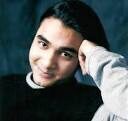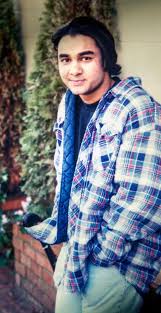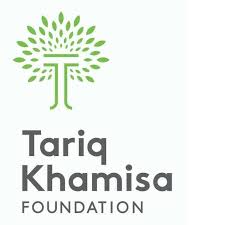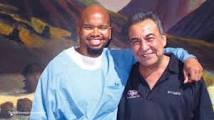


Tariq
Saturday, January 21, 1995
They were just punks; they weren’t really gonna do anything. He’d heard about other drivers getting jacked and knew it went with the territory, but for Tariq, it wasn’t a real threat. Even though he’d only been delivering pizzas for a couple of months he knew this was all bluff. He didn’t carry enough cash for anyone to care about and nobody was going to kill him for a pizza.
So when they surrounded his car and started yelling for him to give up the pizza he just put his old Volkswagen in reverse and backed out of the driveway. They were just kids, barely teenagers. What were they going to do?
But Tony Hicks, ‘Bones’ to his homies, an eighth grader at a nearby middle school, had had a tough week. Sure, he was only fourteen, but he was old enough to make his own decisions and he was sick of listening to ‘Pappa’, his grandfather, rag on about his grades and his friends. He’d made up his mind to bail from Pappa’s place and go back home to Los Angeles to live with his mom, where he could live his own life.
He’d taken Pappa’s shotgun; he was gonna catch hell for that, he knew, but it didn’t matter, he needed the cash. But Q-Tip liked it so he took it. That was jacked all around; now he had no shotgun and he had no money. But Tony knew better than to mess with Q-Tip. Q-Tip was crazy, a stone killer. He’d killed some old drunk, cold as shit, just to prove he could do it. Tony wasn’t going to go up against Q-Tip, no way. But he needed some money and he was pissed. He was pissed at Pappa, he was pissed at Q-Tip, and he was pissed at life. But most of all, right now, he was pissed at this lame ass pizza guy who wouldn’t give up the God damned pizza.
So he pulled out the 9mm pistol from his waistband and pointed it at Tariq’s head.
Funny how things work out. When they’d decided to jack the pizza guy, Q-Tip gave Tony the gun because he thought Tony had a pretty cool head and wouldn’t do anything stupid. The ‘Black Mob’ was mostly a bunch of mid-adolescent malcontents who just liked to get high and hang out and maybe steal some stuff once in a while. But some of these guys were crazy and even Q-Tip knew they shouldn’t be anywhere near a gun. Plus Tony was a minor and wouldn’t get serious time if he got caught with it.
But Q-Tip didn’t know what a short fuse Tony had that particular day and right now that fuse was lit. Tony knew if he didn’t do something quick the pizza guy was gonna get away and they’d be left in the middle of the street like a bunch of chumps. That wasn’t going to happen.
So now here’s Q-Tip screaming at Tony, ‘Bust him, Bones, bust him!” And the pizza guy’s just backing out the driveway like he doesn’t give a shit.
In a flash, Tony knew he had to make a choice; he could throw the gun away, but that was chicken-shit; he could shoot Q-Tip but that might not go over to well with the other guys or he could shoot the pizza guy who didn’t mean shit to him.
Tariq made it to the street and was ready to put it in first when Tony fired. The bullet shattered the glass, blew into Tariq’s left temple and squirreled its way down his neck and into his lung.
The Volkswagen stalled and, along with Tariq, died in the middle of the street. The $15.00 pizza grew cold in the seat beside him as the ‘Black Mob’ ran off into the night.
Unless we’ve experienced it, we can never know what Tariq’s father, Azim Khamisa, felt when Tariq didn’t come home that night. There are no words to express that particular hell.
Though we may never know how Azim felt, but we can know what he did.
We can know how he would not allow his grief to consume him and how he refused to be led down the path of hatred and revenge. We can know how, early on, he would know Tariq was not the only victim that night, and that the line between good and evil is never as clean as we would like it to be. And we can know how, with the help of his family, his faith and his friends he would dedicate himself to giving meaning to his son’s death.
For on October 26, 1995, a scarce nine months after Tariq’s death, the first meeting of what was to become The Tariq Khamisa Foundation took place in Azim’s home in San Diego, California.
Over fifty people filled Azim’s townhome that night. Friends, family, and colleagues; each one intimate with Azim’s loss and each one committed to do whatever possible to stem the tide of a culture of violence that was becoming all too prevalent among an ever younger generation.
The mission of the Foundation was simple; to turn Tariq’s death into a force for good and to find ways to protect other children from the same fate.
But Azim would do one more thing that would eventually come to define the Tariq Khamisa Foundation. He reached out to Ples Felix, Tony’s ‘Pappa’.
Ples Felix had grown up in South Central Los Angeles and understood well the pressures that can overtake a young man in that environment. He’d fathered Tony’s mother when he was just sixteen and been an absentee father most of her life. It was not something he was proud of, but life moved on and Ples had managed to carve out a successful life for himself.
He’d first joined the Merchant Marine, then the Army, and eventually served two tours of duty in Vietnam as a Green Beret. He’d gone on to college and now had a good job with the City of San Diego.
So, when his daughter called from Los Angeles, desperate to get Tony off those same South Central streets, Ples saw it as a chance to make up for some of his own shortcomings and perhaps help his family through his only grandson.
And it seemed to be working. In their five years together Ples and Tony got along well. They were more like father and son than grandfather and grandson. Tony even called Ples ‘Daddy’. Tony kept up with his schoolwork and Ples was glad for the chance to be the father he’d wished he’d been for his daughter.
But by the age of fourteen, Tony began to balk at Ples’ discipline. Boys that age are known to question their elder’s values so Ples wasn’t too concerned about it. Not until that fateful Saturday night did he sense anything was seriously wrong. Not until he found the note from Tony saying he’d run away. Not until he found his shotgun missing.
Ples Felix, soldier, Green Beret, workingman, loving grandfather, had no idea of Tony’s involvement with the ‘Black Mob’ until Tony was arrested for the murder of Tariq Khamisa.
And so, just as Azim’s hopes and dreams for Tariq died that night, so too did Ples’ vision of a better life for Tony. These two men, bound in tragedy, united on opposite ends of a single bullet, now shared an unbearable grief.
Somewhere, deep inside his soul, Azim felt this kinship. And it was this feeling that inspired him to act in a way that so few among us would. In one selfless, compassionate gesture, he reached out to Ples Felix, one father to another, with no expectation other than to console a brother in grief.
Thus began an odyssey that would unite these two extraordinary men in an unprecedented strategy to battle youth violence.
It was a bold yet profoundly simple plan.
First; to go into middle schools and simply let Azim and Ples tell their stories. To put a face on the headline and show the children firsthand the real-life consequences that one senseless act can have.
Next; to let the students ask questions and express their own fears about the kinds of pressure they face every day; the kinds of pressures that could push an otherwise good kid down a frightening path.
Finally; to let the children know that violence is a choice and the effects of a violent choice can be devastatingly final. But also to let them know that alternatives to violence do exist and there are many people, places and programs in place to help them make healthy choices. Choices that can resolve differences peacefully, without the need for violence or conflict of any kind.
Since those early assemblies the Tariq Khamisa Foundation has gone on to reach over 500,000 middle-grade schoolchildren.
Their unique combination of education, mentoring and community service programs has proved to be an effective model to combat youth violence in every community they’ve touched.
A 2011 case study of participating San Diego Unified School District students showed a 63% reduction of overall behavioral referrals for misconduct.
An Escondido Union School District Safe Schools Evaluation found a 65% decreased in the average rate of suspensions for project mentored youth.
These numbers are significant and they are real. They are evidence of the healing power of forgiveness. They are evidence of the effectiveness of non-violent conflict resolution. They are evidence that children do not need to die for the price of a pizza. And they are evidence that children are listening and want a safer life.
But more than that, they are evidence that when any one of us can lay aside our own grief and focus only on what good we can bring to a horrible situation we can do extraordinary things.
We will never know how many children are alive today or how many lives have not been shattered because of the selfless work of Azim Khamisa and Ples Felix. But we don’t need to know how many, we just need to know they are there, and that’s enough.


